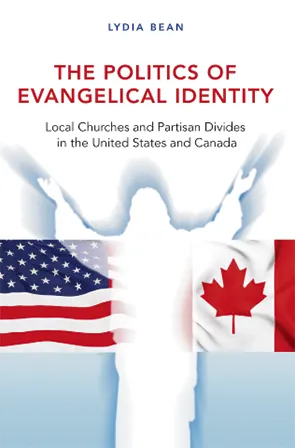THE POLITICS OF EVANGELICAL IDENTITY:
Local churches and partisan divides in the
United States and Canada
By Lydia Bean
Princeton University Press, Woodstock (UK).
336 pages. £19.95
ISBN 978 0 691 173 702
President Donald Trump’s power rests on backing from white, self-identifying evangelical Christians. Around three-quarters of this group of Americans voted for him: four out of five continue to approve his presidency.
Their support of the President is much greater than that from whites in other religious segments – he has a smaller lead among white Catholics and ‘mainline’ Protestants – and this in turn exceeds his support in the population as a whole. The great majority of Hispanic and black Christians, and of all Americans without religious affiliation, oppose Trump1. Evangelicals comprise about a quarter of the US population, and over three-quarters of these are white2. President Trump’s support among white evangelicals is a political base of massive importance. For this segment to have delivered the White House to a man with no prior political experience, no popular majority and no record of Christian belief is a matter of wonder. The Trump Presidency is white American evangelicals’ gift to the world. What made them do it?



